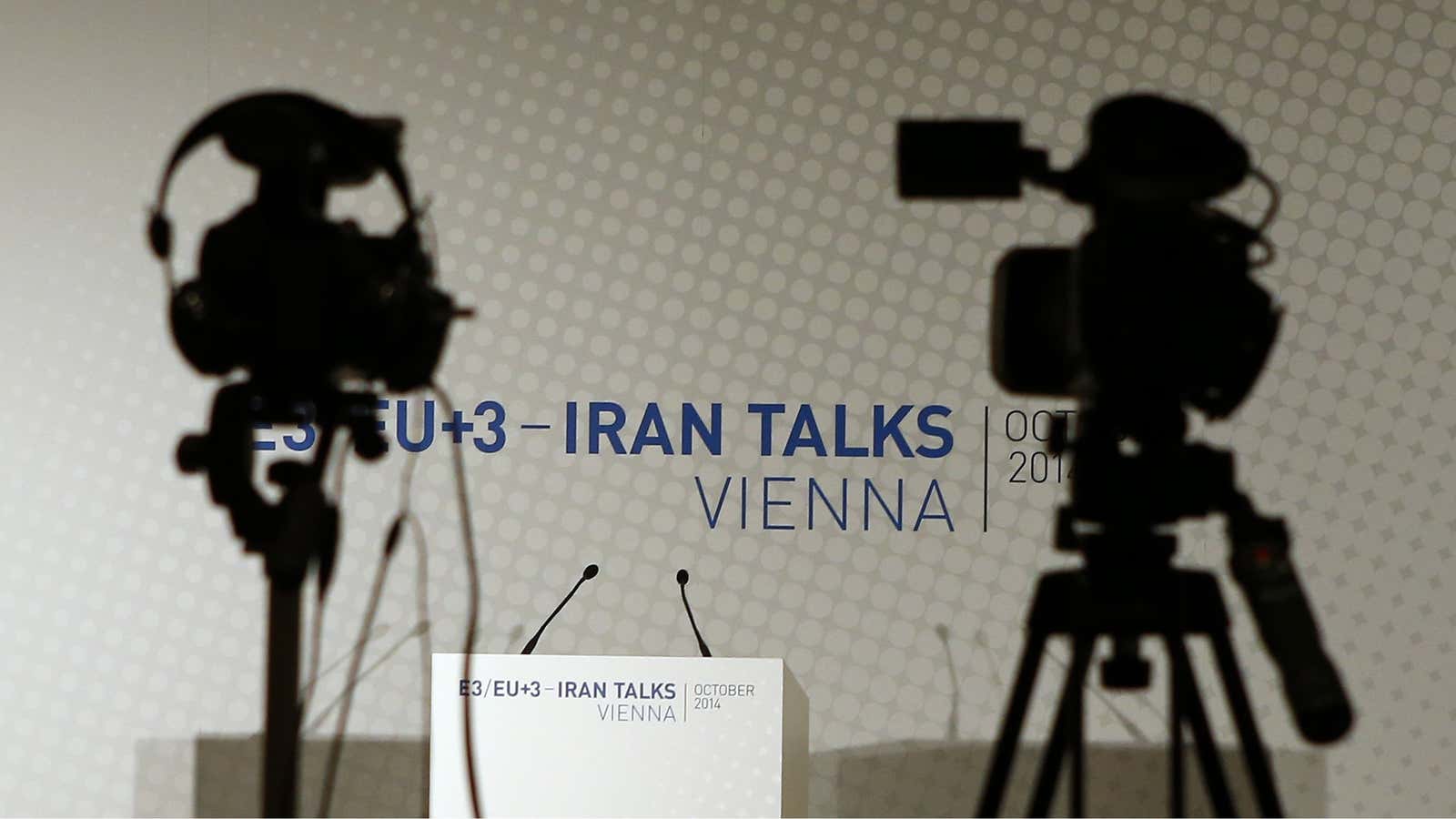The plunge in global oil prices isn’t likely to drive Iran to strike a nuclear deal with the West by next month’s deadline despite Tehran’s added economic difficulties, experts say. They will only push Iran into greater compromise if the talks are extended and the low prices persist.
In Vienna, where two days of resumed talks broke up yesterday, diplomats told the Wall Street Journal that prices—which have plunged by 25% since last summer—could make Iran more conciliatory. Iran is thought to require $140-a-barrel oil—the highest price of any OPEC cartel member—to balance the state budget. Since coming to power a little over a year ago, president Hassan Rohani has said he wants to reinvigorate Iran’s economy by getting Western-led sanctions related to its nuclear program lifted and foreign investors back into his country.
But Gal Luft, of the Institute for the Analysis of Global Security, tells Quartz that Iran has other priorities—in particular continued work on nuclear technology—that it perhaps considers more urgent than economic recovery. “Having the highest fiscal break-even price of all the oil exporting countries, the Iranians have suffered from ‘under-priced’ oil for a while, and that hasn’t had an impact on their behavior,” Luft said. “As in the case of North Korea, and Iraq under Saddam, some regimes are willing to let their people suffer economically in order to advance what they see as strategic cause. National pride is thicker than oil.”
Robin Wright, an Iran expert at the Woodrow Wilson Center, agreed. “Oil prices are pretty far down the list of things that affect Iran’s calculus at the negotiating table on its nuclear program,” she said in an email.
One reason for the possible imperviousness is that Iran does not actually feel much of the day-to-day storm of the markets because the sanctions require that most of its oil revenue accumulate in escrow accounts outside the country. Iran is able to use the money only for humanitarian goods, or open bilateral trade with a few nations—China, India, Japan, South Korea, and Turkey.
Both sides say they will not seek to extend the talks beyond the Nov. 24 deadline. But if they do anyway, and the lower prices continue, “it’s possible that Iran’s position will undergo a reversal to relieve the economic situation,” said Elizabeth Rosenberg of the Center for a New American Security.
